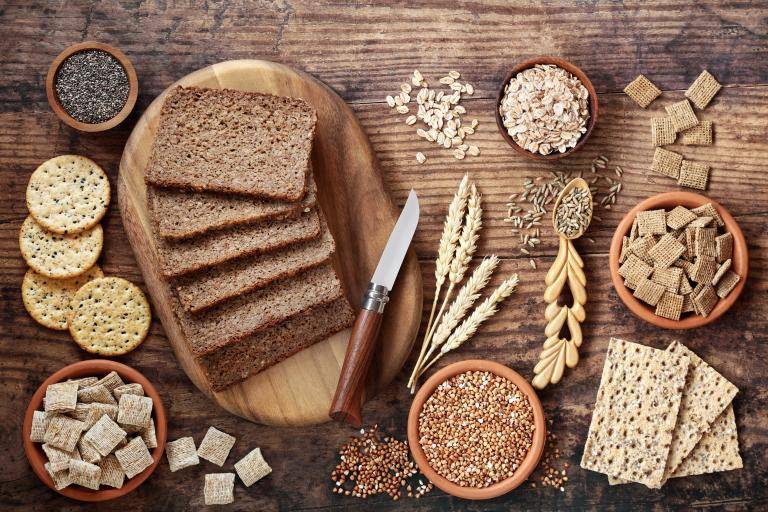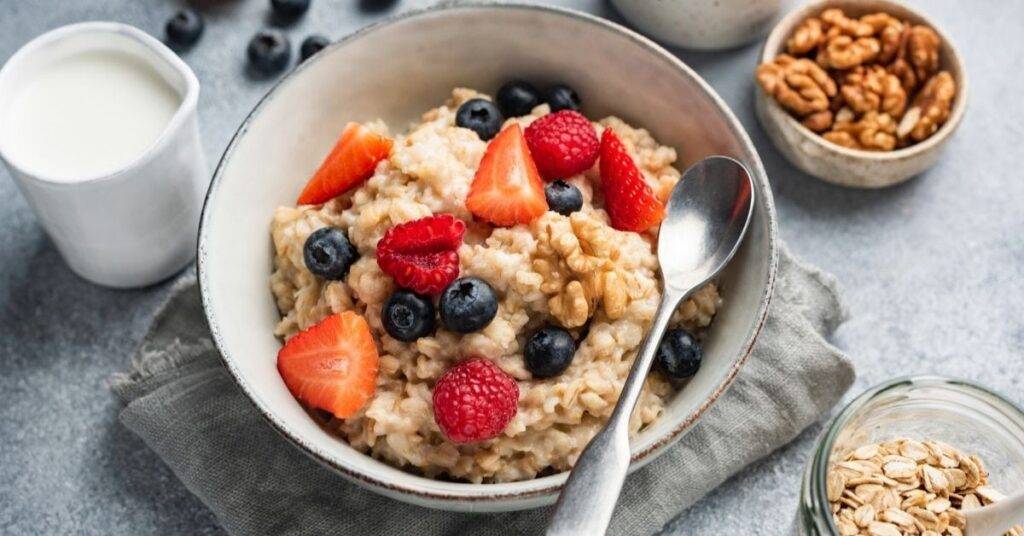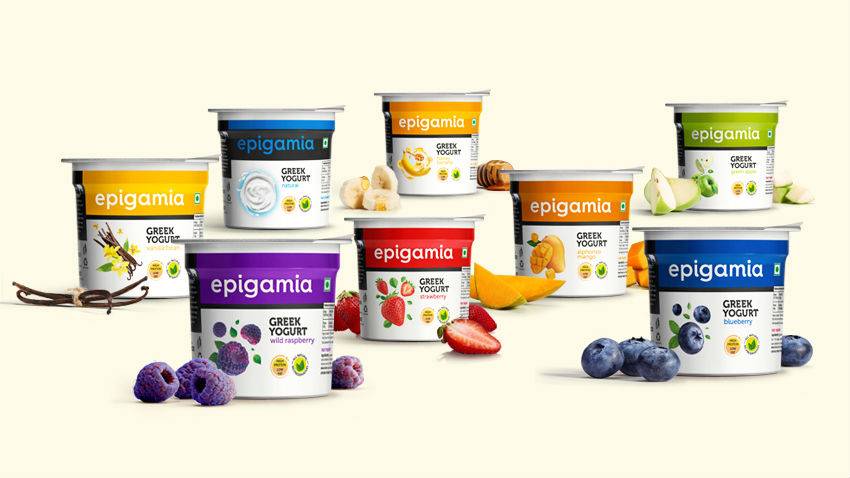Do you want to start your day with motivation? Nourish your body with food that strengthens you. Granted, no one meal is better than another, but a nutritious breakfast can do wonders for the mind and body.
Whether you already eat breakfast every day or have little time for it, turning your first meal of the day into one rich in essential vitamins and minerals will help you break through the underlying brain fog often caused by low blood sugar. People with irregular breakfast habits are more likely to develop metabolic problems, according to a study.
Not only that, but people who ate breakfast were more likely to lower their serum cholesterol levels and keep their hearts in good shape. If you’re part of the “I’m Not Hungry in the Morning” crew and want to get into the habit of eating a healthy breakfast, start small and use trial and error to find foods you can live with and feel like you’re doing your best.
What Does A Balanced Breakfast Look Like?
First and foremost, you’re looking at the better-for-you trio of protein, high-fiber carbs, and fat—but you can add as many vegetables and fruits to the equation as you want. Avoid replacing more fat with high-protein or high-fiber carbohydrates, or vice versa; you need all three to really get your day off to a good start.
Here are 10 of the best foods to enjoy in the morning:
#1. Whole Grains
Whole grains contain antioxidants that protect your tissues from harmful inflammation. They’re also rich in minerals like calcium, potassium, magnesium, zinc and iron — important building blocks for a strong immune system and heart. The B vitamins in whole grains also help your body convert food into energy.
You can choose anything from quinoa to farro, buckwheat groats to millet as the base of your breakfast bowl, then top with savory (eggs, nuts, salmon) or sweet (almonds, milk, honey). Yes, bread can be part of a balanced breakfast: choose 100% whole grain bread.

#2. Eggs
Eggs are an easy, nutritious breakfast choice.
They are an excellent source of protein to support muscle synthesis. Because protein takes a while to digest, it also helps keep you feeling full.
In one study, people who ate eggs and toast for breakfast felt significantly less hungry than those who ate bran cereal, suggesting that a higher protein intake in the egg group — 25 grams versus 11 grams — contributed to a greater satiety.
In addition, the egg group consumed fewer calories at lunch, suggesting that the dish may help with weight management.
Egg yolks also contain lutein and zeaxanthin. These antioxidants help prevent eye diseases like cataracts and macular degeneration.
Eggs are also one of the best sources of choline, an important nutrient for brain and liver health.
Contrary to popular belief, despite being high in cholesterol, eggs do not raise cholesterol in most people. In fact, a review of 23 studies found that eggs were slightly protective against heart disease.
However, try to limit your intake of highly processed breakfast foods that are often served with eggs, such as: B. Breakfast sausage and bacon. Instead, serve eggs with other nutritious foods, such as whole grain toast, whole fruit or sautéed vegetables.

#3. Oatmeal
Oatmeal is one of the best breakfast foods for a number of reasons. As 100% whole grains, they’re rich in fiber, plant-based protein, B vitamins, and minerals like iron, calcium, and magnesium.
Because a type of fiber called “beta-glucan” has been shown to improve cholesterol levels, consumption of whole-grain oats has been linked to a lower risk of heart disease.
Known as “prebiotics,” this type of plant fiber provides your body with good bacteria and helps friendly bacteria in your digestive system survive and thrive.

#4. Spinach
Whether it’s in an omelette, a cereal bowl, or a smoothie, spinach is an excellent breakfast choice. That’s because spinach contains compounds that promote heart health by dilating arteries and lowering cholesterol.
In addition, the nitrates in spinach can lower blood sugar levels, which is especially important for diabetics.
In addition, spinach also contains a variety of essential vitamins. In fact, a half-cup serving of frozen spinach provides 64 percent of the recommended daily value for vitamin A.
#5. Greek Yogurt
If you’re looking for a quick breakfast, Greek yogurt is a great choice.
Made by sifting whey and other liquids from curds, this creamy product has higher protein content than regular yogurt.
It is also lower in calories than other protein sources. A 1-cup (245-gram) serving has 25 grams of protein and only 149 calories.
Plus, Greek yogurt is packed with beneficial nutrients like calcium, vitamin B12, zinc, potassium, and phosphorus.
Certain species are good sources of probiotics, such as bifidobacteria, which aid digestion. To make sure your yogurt contains probiotics, look for the words “contains live and active cultures” on the label.
If you prefer something creamier and higher in protein, Icelandic yogurt (called skyr) is another good option.
Try adding berries or chopped fruit to Greek yogurt to add more fiber, vitamins and minerals.

#6. Berries
Berries — including blueberries, raspberries, strawberries and blackberries — are delicious and full of antioxidants.
Most are high in fiber, which promotes satiety. In fact, raspberries and blackberries provide an impressive 8 grams of fiber per cup (123-144 grams).
Plus, 1 cup (123-144 grams) of berries contains only 50-85 calories, depending on the type.
Berries also provide antioxidants called anthocyanins, which give them their signature blue, purple, and red colour. A diet rich in anthocyanins has been linked to reduced inflammation and a lower risk of diseases such as heart disease and certain cancers.
Additionally, anthocyanins have been linked to better brain health and may protect against age-related mental decline.
You can buy berries fresh or frozen year-round. Add them to Greek yogurt, cottage cheese, oatmeal, or fruit smoothies for a delicious breakfast.
#7. Cottage Cheese
Cottage cheese is an excellent high-protein breakfast food, with an impressive 24 grams of protein per cup (220 grams).
A high-protein breakfast is associated with greater feelings of fullness and less hunger. In fact, one study found that cheese was just as filling as eggs.
Cottage cheese is also low in calories, providing just 180 calories per cup (220 grams). Therefore, it can aid in weight loss without making you hungry.
In fact, one study linked a diet rich in dairy (especially protein-rich foods) to greater weight loss.
You can eat cottage cheese with many other nutritious foods, such as berries, peaches, tomatoes, cucumbers, chia seeds, flaxseeds, or granola.
#8. Bananas
Bananas are rich in potassium and make a healthy mid-morning snack.
Bananas are a quick and easy addition to a nutritious breakfast. They’re also a great mid-morning snack to quench hunger pangs.
Bananas contain resistant starch. Resistant starch is not digested by the body, so it travels through the body unchanged, supporting digestive health. Unripe bananas contain more elastic starch than ripe bananas, which contain more natural sugars.
Bananas are also a great source of potassium, which can support healthy blood pressure in some people. Bananas are great with nut butter or on top of oatmeal or granola.
#9. Protein Shakes
If you’re pressed for time or want to eat breakfast on the go, a protein shake or smoothie is a great option.
There are many types of protein powders, but the most common are whey protein and pea protein.
Protein is important for many bodily functions, such as enzymatic reactions, maintaining and strengthening muscle mass, and supporting healthy skin and hair. Protein also promotes fullness and reduces hunger.
Plus, protein shakes make great post-workout meals. Eating a large meal after a workout can be damaging to your stomach, but drinking a protein shake can lighten your stomach while providing enough protein and nutrients for your post-workout recovery.
For a hearty breakfast, add a scoop of protein powder to a banana, frozen fruit, milk or smoothie.
#10. Avocado Toast
There’s a reason this dish has become a cult favorite in recent years—it’s fast, filling, and most importantly, delicious. Opt for whole-wheat toast for extra fiber, then pair it with a protein source for even more satisfaction.
Yankin recommends two eggs, cooked to your liking. Smoked salmon is another great option. For a plant-based version, try a squeeze of hemp seeds and lime or black beans and salsa.
The possibilities are endless, but if you need some inspiration, we’ve got plenty of healthy avocado toast recipes.

